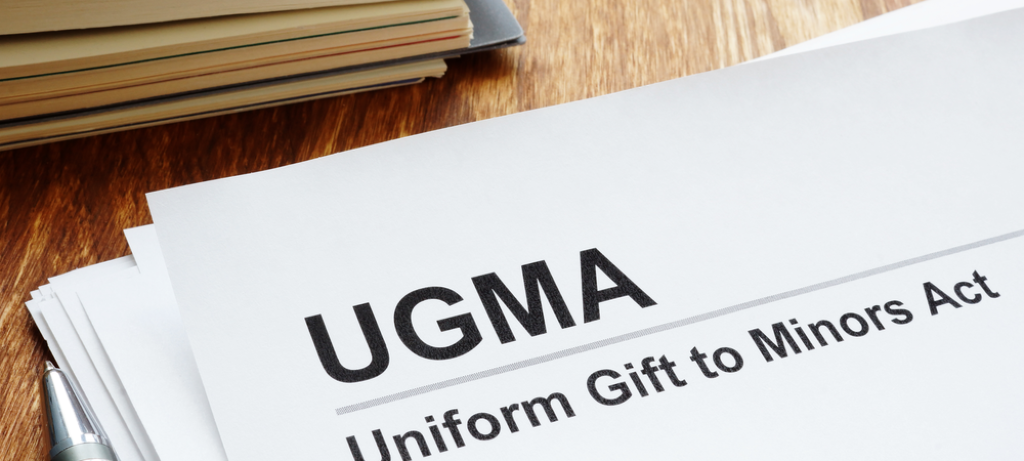Invest in Your Child’s Future Through a UGMA Account

- A Uniform Gifts to Minors Act (UGMA) is an account used to help put money aside for a child once they become an adult.
- Each year, people can contribute to the child’s UGMA account with various financial assets, such as stocks and bonds.
- The money put into the account can only be withdrawn when used for an expense related to the child.
When a child is born, it’s easy to focus on the now and put off the financial planning that comes with your child’s future expenses, such as attending college or moving out. However, as children grow older, many parents begin asking themselves, ‘How do I make sure my child is financially stable?’ By planning ahead and contributing in small amounts, you can significantly benefit your children’s future by investing in a Uniform Gifts to Minors Act (UGMA) account.

Image Credit: Vitalii Vodolazskyi // Shutterstock.com
What is a UGMA account?
A Uniform Gifts to Minors Act (UGMA) is an investment account for minors, allowing adults to give or transfer assets into the underage person’s account to help them save for college or be financially independent. However, once the assets are deposited into the minor’s account, the minor cannot touch them until they become the majority’s age in their respective states. In addition, the type of assets that can be transferred into the UGMA account is restricted to only financial assets, such as stocks or bonds.
The incentive this type of account provides is it eliminates the gift tax for contributions up to $15,000 per person, or $30,000 for married couples in the years 2020 and 2021. In addition, the funds in the UGMA can be withdrawn by the donor, with no fees involved, as long as the funds are being used to cover any expenses related to the child.
Main Differences Between UGMA and UTMA Accounts
Although these two accounts have a similar name, one main difference sets them apart: their contributions.
For both a UGMA and Uniform Transfers to Minors Act (UTMA) account, the annual contribution limit in 2021 per child was $15,000.
However, there are a couple of differences in terms of what can be contributed to a child’s UTMA and UGMA accounts. First, for a UTMA account, the parents and other contributors can add any type of assets, such as stocks, bonds, art, and other financial and physical assets. The greater range allows the child to receive varying returns on their financial assets, which diversifies their risk and maximizes their potential for profit.
However, as mentioned above, a UGMA account does not have the same range of contributions available to contributors when putting away financial assets for the minor. Therefore, your choice to decide between a UGMA or UTMA account depends on the type of assets you wish to set aside for your child.
The Importance of Opening a UGMA account
Opening a UGMA account matters because a UGMA account poses a key benefit for parents wanting to ensure their children are financially comfortable once they legally become an adult. When opening a UGMA account, the custodian can invest the funds in that account. A custodian is typically the parent or guardian of the child appointed to take care of the UGMA account on behalf of the minor. Furthermore, the funds transferred into the account can be used to purchase different types of financial securities.

Image Credit: Dmitry Lobanov // Shutterstock.com
How Can a UGMA Account Help My Child Financially?
A UGMA account helps the child financially in the long run due to the fact that anyone can make contributions. However, as the contributions themselves have a limit of $15,000 financial limit or restriction, it is crucial to keep in mind that the action is irreversible. Once the transaction has gone through, the assets transferred belong to the minor. Thus, when the child reaches the legal age of an adult, they will have access to funds that have been growing due to compound interest and will help them pay for different types of financial expenses, such as paying for college.
What Are Some Drawbacks of a UGMA Account?
As the child may be nearing adulthood, one main concern a parent might have is the child’s thorough understanding of money or lack thereof. Therefore, in some states, parents can change the age when the child receives full control of the funds up until the age of 25.
Not Eligible to Apply for Financial Aid
Another drawback of having a UGMA account is that the child cannot apply for student loans when attending a post-secondary institution. In addition, as the child already has access (or will receive access) to a large sum of money in the coming years, they will not be eligible to apply for financial aid. However, though not receiving financial aid may make it difficult to pay their educational costs, they can apply for different types of grants and scholarships.
Gains on Investments are Taxed
As mentioned above, the funds added to the UGMA are tax-free. The custodian purchases financial securities, such as stocks, bonds, and mutual funds, which are held to help grow the funds initially transferred into the account. Consequently, investing in various financial securities requires the government to report the income earned when selling these commodities.
For simplicity’s sake, the federal government has determined that the assets in the UGMA belong to the child, and the parents can include it under their own taxable income. For the child’s first $1,100 of unearned income, it will be tax-free. The next $1,100 will be taxed at the "kiddie" rate of 10%, and any excess past the $2,200 will be taxed at the parents’ highest marginal rate. If the parents wish not to include their child’s income with their own when filing taxes, the child must then file their own tax return, following the ‘kiddie’ tax rules.
The benefits of a UGMA account outweigh its disadvantages because the assets placed under the minor’s name will be more valuable and resourceful than applying for student loans that will take years to pay back.
However, the money saved up and accumulated compound interest over the past years could help pay off tuition fees if the child wants to continue their education and attend college. On the other hand, if they wish to pursue different career paths that do not require post-secondary education, they can use the money in their UGMA account for investment opportunities like starting their own business. A child with a UGMA account can also use their funds as supplemental income.
What are some other benefits to having a UGMA account? Let us know in the comments below.
Main Image Credit: fizkes // Shutterstock.com